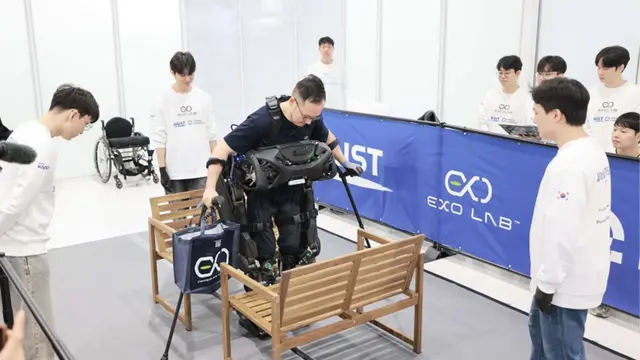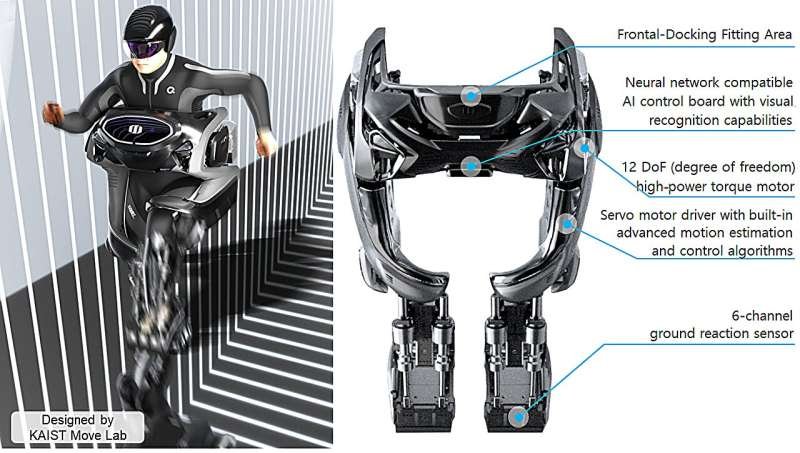The Korea Advanced Institute of Science and Technology (KAIST) has unveiled a groundbreaking advancement in robotics with its WalkON Suit F1, designed specifically for individuals with severe paralysis.
This innovative wearable robot represents a promising leap forward, providing direct usability from wheelchairs without the need for assistance.

The WalkON Suit, which first surfaced in 2016, has evolved considerably, addressing one of the most profound challenges faced by wearable robotics— the need for external help to wear the device.
The new WalkON Suit F1 model introduces a front-fitting system, along with the ability to autonomously walk to the user, thus enabling complete independence right from the wheelchair.
One of the suit’s key features is its advanced weight balance control, allowing it to remain stable even on uneven surfaces or when subjected to unexpected pushes.
This offers users the ability to maneuver through everyday environments, handling obstacles like narrow passages and stairs independently.
Developed in collaboration with Angel Robotics, the WalkON Suit F1 features components entirely sourced and manufactured in Korea.
The increased output density of motors and reducers doubles performance, allowing for a more powerful yet lightweight design crucial for user comfort and mobility.
Bolstered by enhanced control technologies, including visual recognition for obstacle detection and AI for neural network applications, the suit navigates its surroundings with precision.

The collaboration has also resulted in improved software, enabling the execution of advanced motion control algorithms without costly external controllers.
This innovation comes at a critical time as the WalkON Suit F1 will soon be put to the test at the 3rd Cybathlon.
This international competition challenges robotic devices through real-life scenarios, aiming to showcase their ability to overcome everyday challenges.
The development journey of the WalkON Suit reflects a paradigm shift in assistive technology, moving from rehabilitation-focused devices to robots that empower users with newfound independence.
According to Professor Kyoungchul Kong, the driving force behind this project, the WalkON Suit F1 stands as a pinnacle of wearable robot technology, setting new benchmarks in the industry.
The societal implications of the WalkON Suit F1 are profound, offering hope for greater accessibility and autonomy to people with disabilities.
As wearable robotic technology continues to advance, devices like the WalkON Suit F1 promise to foster a more inclusive world, providing unprecedented freedom to those who need it most.
Looking ahead, KAIST and Angel Robotics are not just demonstrating technological prowess but laying the groundwork for future innovations that could redefine the concept of independence for individuals with paralysis.
The participation in the Cybathlon underscores the potential for continued technological growth and broader societal impact.
